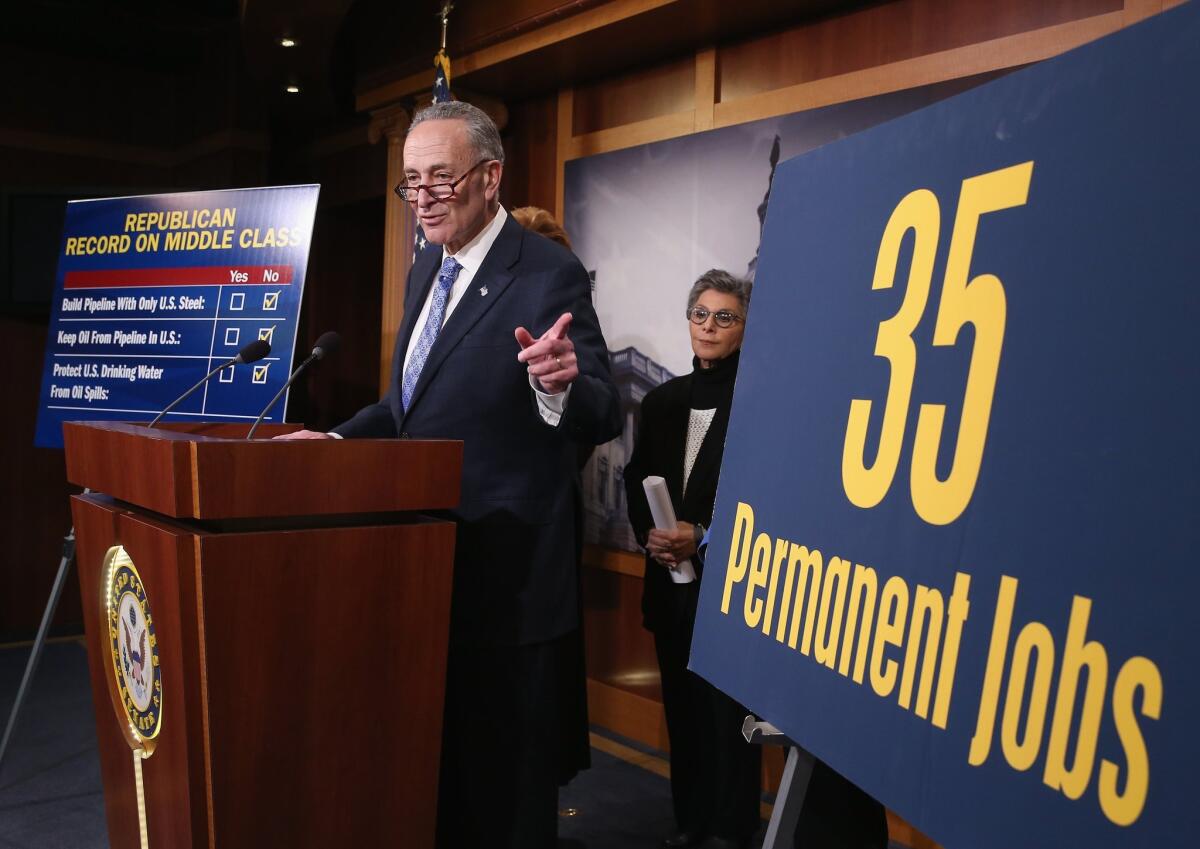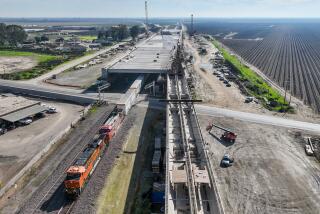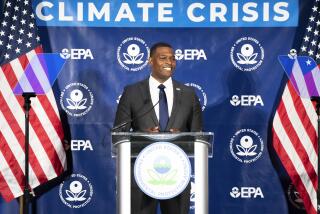EPA gives Obama new reason to reject Keystone pipeline: low oil prices

- Share via
Reporting from Washington — As President Obama weighs whether to approve the controversial Keystone XL Pipeline, federal environmental officials gave him a new reason Tuesday to reject it: declining oil prices.
The Environmental Protection Agency is cautioning the White House not to rely on earlier administration findings there will be a market for the oil from the Canadian tar sands where the project is to originate. Plunging prices in global oil markets have led the EPA to advise that the extraction of that oil may not make sense economically for energy companies if the administration rejects the Keystone proposal.
Shipping the oil through more costly alternative methods just may not pencil out, the EPA says. And if the oil is never extracted, an EPA report notes, a large amount of greenhouse gases will never be released.
The shift in thinking, disclosed in a letter to the State Department, where the project’s application has been in limbo for years, comes as the GOP-controlled Congress prepares to send President Obama a bill that would force approval of the pipeline. A bill already approved in the Senate is expected to pass the House next week. Obama has vowed to veto the legislation but has left open the possibility that the administration may ultimately approve the project.
According to the EPA report, the project at its full capacity would release as much greenhouse gas into the atmosphere yearly as 5.7 million cars or nearly eight coal-fired power plants. “Over the 50-year lifetime of the pipeline, this could translate into releasing as much as 1.37 billion more tons of greenhouse gases into the atmosphere,” the agency’s report says.
Market analysts began warning late last year that the declining price of oil threatens the project’s viability. But they have been careful to note that oil prices are unpredictable and would need to remain low for years to turn Keystone into a money loser. The EPA echoed that sentiment.
But it also noted that oil, recently trading at about $50 a barrel, would need to go back up to at least $65 to $75 – and stay there for a sustained period – before it would make economic sense for producers to ship it by rail from the Canadian tar sands.
Environmentalists cited the EPA’s findings as they continued to press the administration to reject the pipeline. “The EPA’s assessment is spot-on,” Danielle Droitsch, Canada project director at the Natural Resources Defense Council, said in a statement. “There should be no more doubt that President Obama must reject the proposed pipeline once and for all. If built, it would transport Canadian tar sands oil – the dirtiest fuel on the planet – through America’s heartland, only to be refined and then shipped abroad.”
But oil companies dismissed the latest report as a political ploy.
“Suggesting that the drop in oil prices requires a reevaluation of the environmental impact of the project is just another attempt to prolong the KXL review,” Louis Finkel, executive vice president of the American Petroleum Institute, said in a statement. “Keystone XL was put forward when oil was less than $40 a barrel, so price has little impact on the project.”
TransCanada, the company that wants to build the pipeline, defended its planned steps to preserve the environment and called for the administration to finish the review and approve the project.
“It’s time to complete the review of Keystone XL, approve our presidential permit application and allow” this project to go forward, company spokesman Shawn Howard said in a statement.
Twitter: @evanhalper
More to Read
Sign up for Essential California
The most important California stories and recommendations in your inbox every morning.
You may occasionally receive promotional content from the Los Angeles Times.













